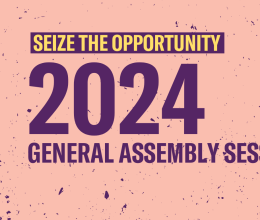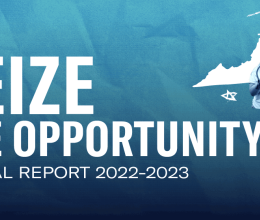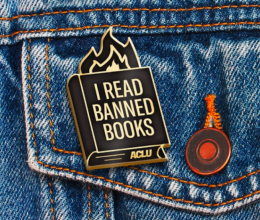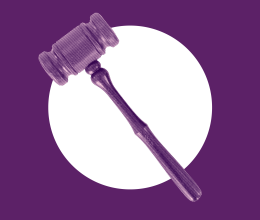
This blog post, written by ACLU of Virginia Executive Director Claire Guthrie Gastañaga and ACLU-VA Board President Steve Levinson, was originally published in the Richmond Times-Dispatch on Aug. 26, 2017.
On Aug. 8, Jason Kessler approached the ACLU of Virginia, the premiere civil liberties organization in Virginia and a leading voice on civil rights, to ask us to represent him in a challenge to the City of Charlottesville’s decision on Aug. 7 to revoke a permit to demonstrate on Aug. 12 that he had applied for on May 30.
The decision to represent Kessler wasn’t an affirmation of his views — which we abhor — any more than our advocacy for due process rights for sex offenders is an endorsement of child abuse; any more than our advocacy for freedom of religion signals support for the use of religion as a justification for discrimination; or any more than our opposition to the death penalty indicates support for capital murder.
What we decided to defend, with the facts available at that time, and only after requiring Kessler to swear in court papers that he intended the rally to be “peaceful” and “avoid violence,” were important principles of constitutional government. The First Amendment guarantees political speech, including protest, the highest level of protection — and the right to speak out is most robust in public spaces, including public parks and streets. Since this country’s founding, people have taken to the parks, streets, and sidewalks to make their voices heard on matters of public concern.
This case we brought against the city was about viewpoint discrimination. It was also about what evidence the government must present when seeking to revoke a permit once granted and to regulate the “place” of speech. Finally, it was about when and whether the voices opposing a person’s speech can be preferred by government and allowed to drive out speech that is deeply offensive to others.
We understood, as did everyone, that the Aug. 12 event presented a risk of violence. We did not know, nor could we have forecast, how law enforcement from the city, county, and state would act to protect the public from that risk.
History can be an unforgiving tutor. We are working to learn all that the tragic events of Aug. 12 have to teach us. We hope to do that learning collectively in an environment focused on the future, remembering that when people make the next difficult decision they, too, will not have the benefit of hindsight; they will only be able to apply to a unique situation the intelligence and experience we share now.
Protecting the First Amendment in the current context requires extremely careful security and policing. Federal, state, and local law enforcement (including campus police) need to be able to protect events where there is protest and risk of violence and withstand the criticism that comes with affording constitutionally required protection to those with odious ideas.
If we cannot find a way to police protests effectively and constitutionally in the current context, the result could well be that any and all speech can be prohibited if there is any risk of violence and only speech endorsed by the government with the resources to secure it will be heard. Among other things, we should ask ourselves why weapons of any kind (even sticks on signs) have been allowed to be carried into demonstrations in Virginia when they are not allowed at presidential inaugurations, congressional town halls, sporting events, or concerts or other large gatherings.
We believe that the Constitution and the rule of law offer a framework for decision-making that can protect speech and the public safety. We have offered to participate in “know your rights” training for local and state government officials facing these difficult situations and are encouraged that one local government association has invited us to participate in an upcoming statewide conference.
Our values at the ACLU of Virginia are people, progress, integrity, justice, and courage. We are listening to our critics with an open mind and heart. After what happened in Charlottesville, no one can dispute that white supremacists, Nazis, and their compatriots present a real and present danger to our democracy. Nonetheless, without a safe, secure, and nonviolent space for the free expression of ideas there can be no true freedom in academic, artistic, scientific, or political affairs. The decisions we make in this moment should not be ones that empower future leaders to use them as precedent in the pursuit of tyranny.



